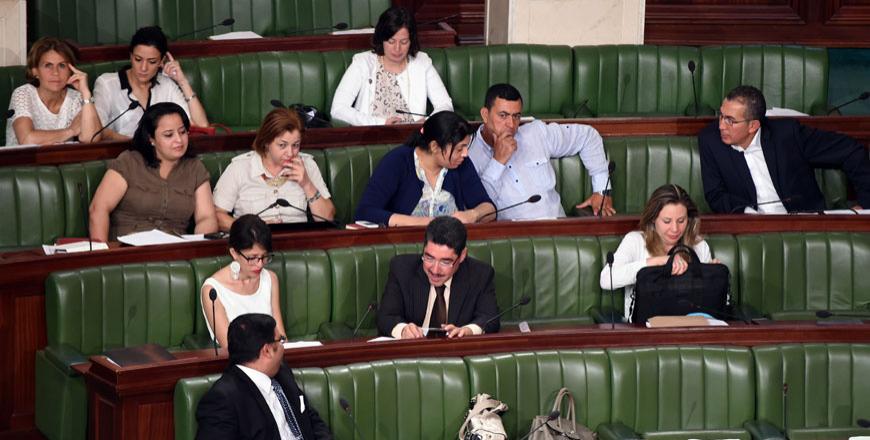You are here
Tunisia lawmakers debate new anti-terror bill
By AFP - Jul 22,2015 - Last updated at Jul 22,2015

Tunisian MPs attend a debate at the Assembly of the Representatives of the People in Tunis on Wednesday (AFP photo)
TUNIS — Tunisian lawmakers began a three-day debate Wednesday on a new anti-terrorism bill aimed at beefing up powers to confront a jihadist threat following a spate of deadly attacks.
President Beji Caid Essebsi imposed a state of emergency after a student went on a shooting rampage at a beach resort last month, killing 38 foreign tourists, most of them Britons.
Tunisia has come up with several drafts of legislation to deal with "the fight against terrorism and money laundering" since the 2011 revolution, but none reached parliament because of a lack of consensus.
The latest version would allow courts to impose death sentences for terror convicts and make it easier for investigators to use phone-tapping against suspects.
It would also make public expressions of support for terrorism a jailable offence.
The bill went before lawmakers after it won approval from a commission made up of party representatives, including from the Islamist Ennahda and Essebsi's Nidaa Tounes.
"This project is one of the measures among others" in combatting the jihadist threat, said lawmaker Khaled Chouket of Nidaa Tounes.
"It is a historical test and we must win... to reinforce the values of [the Prophet] Mohammed," he added.
Sahbi Attig, a counterpart from Ennahda, called on parliament to amend the bill, arguing some of its measures were too repressive.
"We must be vigilant to ensure Tunisians aren't faced with injustice," he said.
It would replace the 2003 terrorism law, passed under the dictatorship of Zine Al Abidine Ben Ali and widely criticised as being a tool to crush dissent, especially from then-banned Ennahda.
But advocacy groups, including Amnesty International and Human Rights Watch, have condemned the latest bill.
They have described it as draconian, saying its definition of terrorist crimes is too vague and that it fails to adequately safeguard the rights of defendants and could undermine freedoms.
In a joint letter this month, nine human rights groups including Amnesty International and Human Rights Watch (HRW), criticised the bill, with the latter saying it was "flawed".
"Tunisian authorities have legitimate concerns about the growing influence of extremist groups and individuals and the threat they pose to Tunisians and foreigners," said Eric Goldstein, HRW's deputy Middle East and North Africa director.
"But laws to counter terrorism should meet — not flout — international human rights standards," he said in a statement.
Critics say the bill would allow the authorities to detain suspects for 15 days without access to a lawyer or being brought before a judge, as well as put harsh restrictions on journalists.
Members of the opposition were among those to criticise the bill.
"We fear the fight against terrorism could be turned into a fight against social and popular movements," said Ammar Amroussia of the leftist Popular Front.
Essebsi decreed the month-long state of emergency on July 4, eight days after the shooting at the Mediterranean resort of Port El Kantaoui killed 30 Britons, three Irish nationals, two Germans, one Belgian, one Portuguese and a Russian.
That came after two gunmen attacked Tunisia's national museum on March 18, killing 21 people including four Italians, three Japanese, three French, two Spaniards, a Colombian, an Australian-Colombian, a Briton, a Belgian and a Pole.
Both attacks were claimed by the Daesh terror group.
Related Articles
TUNIS — Tunisia's ruling party Nidaa Tounes on Saturday elected two leaders, one of them the president's son, in two parallel congresses, de
TUNIS — A senior member of Tunisian President Beji Caid Essebsi's ruling party said on Wednesday he plans to break away and form a new polit
TUNIS — Tunisian dissident Mohsen Marzouk opened a congress of his new party on Saturday, rejecting religion in politics and vowing to be a
















